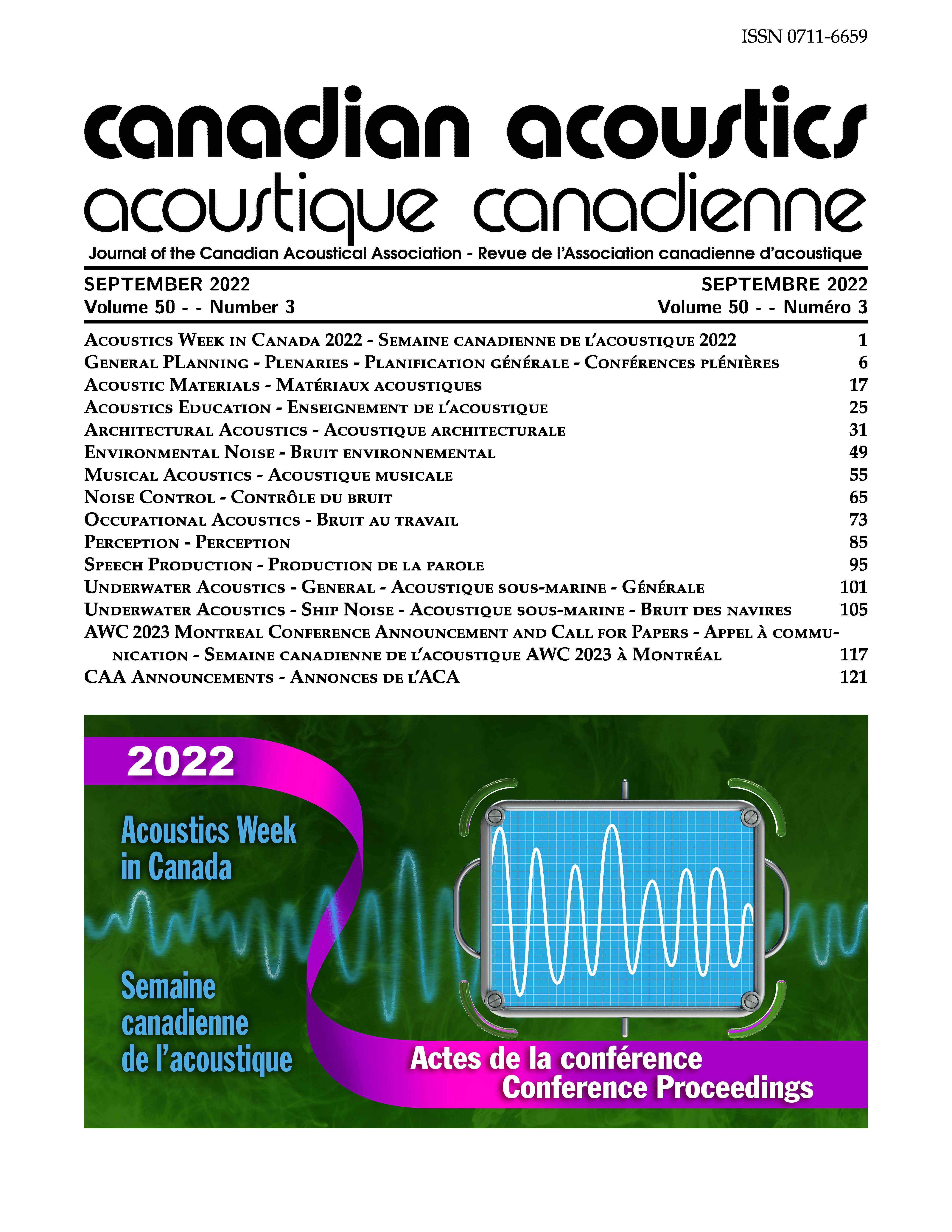Impact of Coronavirus Face Masks on the Perceptual Evaluation of Hearing Protectors Comfort
Résumé
After a long hiatus of several months where many research projects were paused or postponed for reasons related to COVID-19, research activities requiring presence in labs resumed at Université de Sherbrooke in July 2020. Research projects involving human participants were authorized to restart as long as participants and experimenters ensure compliance with COVID-19 health and safety requirements. Among the implemented measures to mitigate the transmission of the severe acute respiratory syndrome coronavirus 2 (SARS-CoV-2), wearing a procedure mask or a N95 mask quickly became mandatory to prevent and/or limit the spread of SARS-CoV-2.
Prior to the COVID-19 outbreak, the assessment of earplugs’ comfort carried out at Groupe d’Acoustique de l’Université de Sherbrooke were performed without wearing facial masks. Since the comfort or discomfort of earplugs is multi-dimensional (physical, functional, acoustical, and psychological), it is therefore necessary to determine whether the earplugs’ comfort evaluations performed with a facial mask can be aggregated with those obtained without a facial mask.
In the absence of sufficient conclusive evidence in the literature, we decided to compare the earplugs’ comfort evaluations obtained before (i.e., without mask) and after (i.e., with mask) the implementation of mitigation measures to control the spread of SARS-CoV-2, in an attempt to conclude to the question “Does wearing a facial mask influence the earplugs’ comfort evaluation?”. Responses to subjective questionnaires on earplugs’ comfort were used to assess the influence of wearing a facial mask on the physical, functional, acoustical, and psychological dimension of the earplugs’ comfort. Additionally, speech in noise tests and alarm detection tests were conducted to complement these subjective comfort assessments. Results show no significant statistical differences between the evaluation data obtained with mask and those obtained without mask.
Fichiers supplémentaires
Publié-e
Comment citer
Numéro
Rubrique
Licence
Author Licensing Addendum
This Licensing Addendum ("Addendum") is entered into between the undersigned Author(s) and Canadian Acoustics journal published by the Canadian Acoustical Association (hereinafter referred to as the "Publisher"). The Author(s) and the Publisher agree as follows:
-
Retained Rights: The Author(s) retain(s) the following rights:
- The right to reproduce, distribute, and publicly display the Work on the Author's personal website or the website of the Author's institution.
- The right to use the Work in the Author's teaching activities and presentations.
- The right to include the Work in a compilation for the Author's personal use, not for sale.
-
Grant of License: The Author(s) grant(s) to the Publisher a worldwide exclusive license to publish, reproduce, distribute, and display the Work in Canadian Acoustics and any other formats and media deemed appropriate by the Publisher.
-
Attribution: The Publisher agrees to include proper attribution to the Author(s) in all publications and reproductions of the Work.
-
No Conflict: This Addendum is intended to be in harmony with, and not in conflict with, the terms and conditions of the original agreement entered into between the Author(s) and the Publisher.
-
Copyright Clause: Copyright on articles is held by the Author(s). The corresponding Author has the right to grant on behalf of all Authors and does grant on behalf of all Authors, a worldwide exclusive license to the Publisher and its licensees in perpetuity, in all forms, formats, and media (whether known now or created in the future), including but not limited to the rights to publish, reproduce, distribute, display, store, translate, create adaptations, reprints, include within collections, and create summaries, extracts, and/or abstracts of the Contribution.


